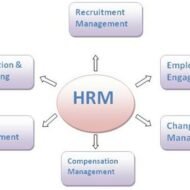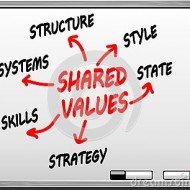Posted by Managementguru in Business Management, Change management, Human Resource
on Jun 25th, 2014 | 0 comments

Smith et al. describe management as “Making Organizations perform”. Management is concerned with Individuals who are delegated authority to manage others – Let me call them ‘People with Power’. Activities for achieving goals – ‘Real Action Plans’. A body of knowledge represented by theories and frameworks about people and organizations – ‘Policy Framework’. What do managers do? As we all know they are involved in general management functions like Forecasting Planning Organizing Motivating Co-ordinating Controlling Are you aware of the ‘hidden’ dimensions of a manager’s job? Modern management theories, although highlighting the complexity of the role, have yet to provide sufficient empirical research and advice into key areas that enable both managers and organizations to increase their effectiveness. For example Dealing competently with organizational politics (“You can ignore it, but it won’t go away” – This is how surveyed employees said they viewed office politics) Successfully managing change (Adaptability is about the powerful difference between adapting to cope and adapting to win) Controlling ethical issues and demands (It takes 20 years to build a reputation and five minutes to ruin it. If you think about that, you’ll do things differently.) Developing the role of women managers (Women can be better managers than men because they tend to be more conservative and do their homework. Men tend to take more risk without the research) Ensuring personal ‘survival’ and career success in organizations (A successful man is who lays a firm foundation with the bricks others throw at him.) Safeguarding personal health in a stressful environment (Manage stress before it manages you). How to achieve a more comprehensive view of development? Frameworks for setting, linking, and balancing individual and organizational objectives. Systems for identifying and selecting managers Structures to support, motivate and reward Plans to enable career progression Mechanisms to measure and evaluate performance. HRM and Management Development Human resource management as the name suggests is about the effective management of people in organizations. HRM involves the integration of people with business goals and strategies HRM views people as assets to be developed and utilized in a productive way rather than costs to be minimized or eliminated. The philosophies, ideologies, values and beliefs of management that operate and dominate within the organization have an impact on people management. The practices, policies and management styles that managers employ in their managerial role also align people’s behavior towards organizational goals. Senior managers determine the extent to which people are integrated into the organization’s strategic plans. They set the agenda and create the culture climate of prevailing values, attitudes and behavior. Middle and junior managers translate and ‘operationalize’ broader human resource strategies and policies. They give HRM its meaning and reality. It is their perfect management style and actual behavior that decided how the human resources is deployed and managed and thus what people experience as human resource management. The way managers themselves are managed and developed is a significant influencing factor in the way people are subsequently...

Posted by Managementguru in Business Management, Change management, Decision Making, Entrepreneurship, Human Resource, Leadership
on Mar 30th, 2014 | 0 comments

Power and Balance in Corporate Governance Power has the ability to disorient a person’s behavior and attitude. When properly used it leads to height of efficiency, when misused it calls for calamity and disorientation in the entire business firm. It is nothing but the authority that comes with your job which has to be utilized for constructive purpose and at the same time to ascertain that things are “going in the right direction.” Precise use of power leads to a congenial atmosphere in your business arena”. Otherwise in course of time you might have to tackle warfare with your subordinates and the “undercurrent of animosity” might ruin your business success. How it affects Inter-Personal Relationship: When we talk about POWER it usually fits well into the top level management cadre, as managers and senior managers are assigned with huge powers in order to lead the firm in times of crisis as well as maintain the consistency of the nature of the firm. So when there is abuse of power consciously or unconsciously, people create a space between themselves and that particular person who misuses the power. So the result would be a lack of interpersonal relationship between the manager and the employees. Managers generally acquire and use influence that has its impact not only on the behavior of the individuals, but also on the organizational effectiveness as a whole which in turn affects productivity. Use Power as a Constructive Tool: In fact, authoritative behavior is often misunderstood by most of the managers in the business setup; there is a need for the managers to skillfully use their power in order to extract work from their teams as well as to maintain a balance between the extent to which authority must be used and the tolerance level of the employees’ (mind set). So it is more of a psychology which involves much critical analysis on the part of the manager to understand the constructive aspects of his authority and how employees at a lower level will always look up to him for support and guidance and not indifference. Power covers and affects the following important aspects, Discretion Crisis management Dependence of employees Responsibility Leadership Governance Interpersonal relationship Change management Environmental influences Reward systems Collaborative management Success of the firm and so on. In order to maintain his own integrity as well as the organisations’ the manager must be able to appreciate the relevance of power in management just by not looking into the literature but act in accordance with the situation. A detailed analysis of power dynamics makes the manager more effective in dealing with behavior inconsistencies in the organization. Try to be more open in your communication and make your employees feel that “You are always there” to support and guide them. This in turn will make your “Boss to have a second look at you” for a promotional pay. This discussion is from the manager’s perspective and there is more to be discussed and considered from an employee’s...

Posted by Managementguru in Business Management, Change management, Human Resource, Organisational behaviour, Principles of Management, Project Management
on Mar 30th, 2014 | 0 comments

Effective people are preferred to rather than efficient people as the former does the right thing and the latter does things right. Redesigning your workplace not only refers to the infrastructure but also the internal factors that might affect the productivity of your firm. Big corporate firms generally face challenges in the form of Lack of co-operation between subunitsIncreasing complaints from the customersRising Operating costsDip in the moraleMajor changes in technology All these signs are indications of a not so enterprising organizational climate. And it calls for quick decision making regarding introducing some changes that bring some positive development in terms of improved efficiency and increase in productivity. Redesigning Workplace in Response to Exogenous Factors Growth of Organizations The challenges mentioned above may make an organization’s existing structure, management practice or its culture obsolete for the new situation. Growth of an organization should be a result of collaborative effort of all the units of an organization and it is objective and not subjective. An organization is comprised of different elements which interact in deciding the organizational effectiveness. The task or goal, technology, structure, people and the internal and external environment of the firm; all these coexist and hold the firm together. Be it a school, a hospital, a union, a club or a business enterprise the interactive nature of these elements make the process of managing very difficult. Medical tourism and business travel are becoming more popular in Asian countries as it increases the scope of collaboration of industries that can coexist to enjoy a win-win situation. Who is an Effective Manager ? An effective manager anticipates these challenges and proactively initializes a planned change. He strategically prepares the organization to be subject to planned change by manipulating the structure, technology and behavior. Understanding the dimensions of change helps him to manage change better as people are always resistant to change. Modern enterprises right from the start have to install and implement “systems” that are technologically most modern and hire suitable people who are techno-savvy; Because technology rules the world and the development of new software programmes and hardware components feed on themselves every day. Developing an Organization as a Whole Behavior of people is unpredictable but controllable. Individually oriented training and development programmes does not prove much to the benefit of the organization as it creates apprehensions in the minds of the individual that are related to the culture and attitude of his superior and subordinates. The idea of developing the organization as a whole through team building is a better perspective as it renews the enthusiasm of people working for you and as a team they feel more cohesive and adhered. Synergy plays its role in improving the interpersonal relationship amongst the team members. Firms are becoming more modern in their outlook. For instance, a showroom whose purpose is to showcase your products also provides entertainment by its aesthetic value. Only if the customer is impressed by the artistic way of your exhibit, will he enter your showroom. Change is inevitable and it improves the health of an organization. The focus should be on “total system change” and the orientation is towards achieving desired results as a consequence of planned activities. Flat Organizational Structure You would have come across the latest buzz word “flat organizational structure”. This is designed in order to bridge the gap between front line employees and the executive level. If there is only few levels of management, the process of communication is more effective, the art of delegation becomes mandatory and need for participation in the decision making process involves all the employees which in turn reduces bureaucracy. There is no set pattern...






